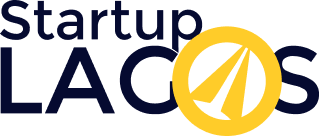In Nigeria, the lack of reliable internet connectivity is a significant issue impacting various aspects, from business operations to personal leisure. Many Nigerians face challenges such as slow speeds, frequent outages, and unreliable service, affecting productivity and enjoyment in an increasingly digital environment. While the country faces a number of challenges, Rexifi Technologies Limited aims to provide reliable high-speed internet solutions that will transform connectivity in the country. Rexifi is an innovative provider of wireless and Fiber to the Home (FTTH) broadband services, committed to delivering top-notch fiber and radio internet services for homes and offices. Their triple-play service encompasses broadband, voice, and video, ensuring a comprehensive and seamless internet experience. Rexifi Technologies presents a range of plans tailored to meet diverse needs and budgets:
Rexifi is actively bridging the digital gap by offering high-speed unlimited internet services in Lagos and various regions across Nigeria. This is made possible by the innovative use of solar and blockchain technologies to offer affordable, secured and reliable connectivity.
The product not only ensures reliable connectivity but also promotes sustainability by utilizing renewable energy sources. By incorporating blockchain, Rexifi ensures secure and transparent transactions, building trust among users. This advanced service is especially beneficial in remote areas lacking traditional internet infrastructure, providing communities with access to essential information, education, and economic opportunities.
Moreover, Rexifi not only provides internet services but also engages in local initiatives like digital literacy programs to help individuals and businesses maximize their online presence. This holistic approach ensures that the benefits of connectivity are fully realized, contributing to the overall progress and prosperity of these communities.
According to the Founder/CEO Mr. Chuks Rex Ngbadike “Our primary focus is to get the price as low as possible and to operate in the communities that don’t have fiber connectivity or are unlikely to get fiber. Therefore, we’re not really going to compete against anyone because we are going after a market sector that is not well served.”
Affordability remains one of the main roadblocks to internet access across the continent and Rexifi Internet service has been trying to solve this puzzle since it entered in Nigeria.
Africa, and more narrowly sub-Saharan Africa, has the most expensive internet prices in the world, and this negatively impacts on the continent’s ability to grow its digital economies and to adapt to situations like the COVID pandemic. The pandemic’s containment measures, for instance, required most people to work from home and for students to continue learning online — but this remained impractical in most countries across the continent due to the lack of necessary gadgets and internet connectivity, partly due to underdeveloped infrastructure and pricing.
Benefits of affordable data and a more connected internet are massive in that as more people get connected, sectors such as e-commerce and e-learning will experience a take-off.
Rexifi Internet currently serves over 5000 homes and small businesses in Lagos, Owerri and Asaba; including low and middle-income neighborhoods, and thousands more through its street Wi-Fi connection; a pay-as-you-go solar-powered WiFi hotspot called "WiFiCard." This solution, connected directly to a fiber optics backbone, aims to enhance connectivity in densely populated areas, markets, MDUs, and public spaces. By offering seamless internet access without the need for additional hardware purchases, this service empowers communities with reliable and affordable internet connectivity, bridging the digital divide and creating more opportunities for education, commerce, and social interaction. With a focus on sustainability and convenience, Rexifi is set to revolutionize connectivity in urban and rural settings.
Rexifi has been instrumental in bridging the needs of last-mile connectivity, and their ultra-low-cost solutions can be used to address the significant connectivity gaps in Nigeria and across the continent as a whole. This is particularly important at a time when societies and economic activities are increasingly becoming digitized as a result of the post-COVID-19 pandemic era.
Play audio








No comments